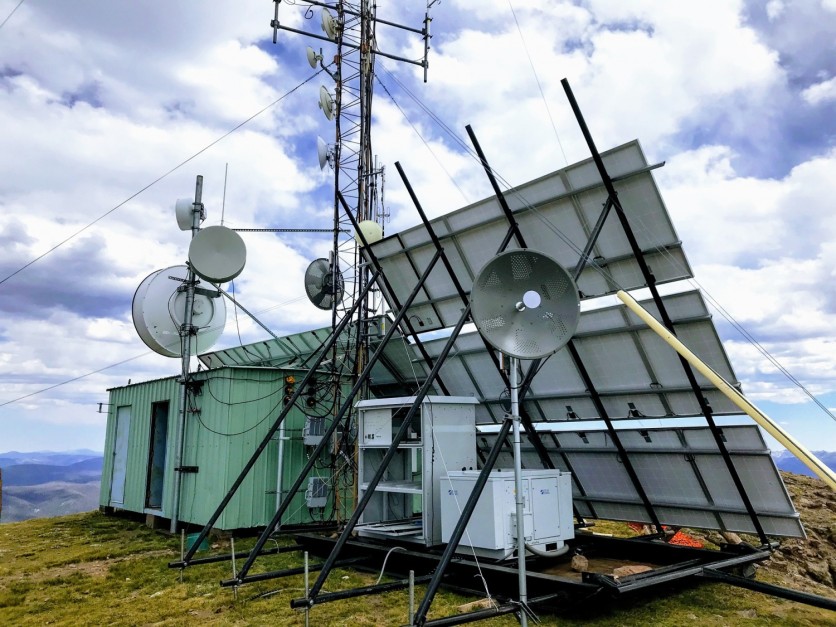At least 20 cell towers in the United Kingdom have been vandalized or set on fire since Thursday. The motives behind such mess could be traced back to a strange, baseless principle that emerged in February: that 5G wireless networks caused the COVID-19 pandemic. If not that, then that 5G mysteriously speeds up the transmission of the virus.

While the arson and threats against telecom engineers literally just running on antennas have been in the U.K., claims that 5G can purpose harm aren't limited to Britain.
The 5G conspiracy theory is not only the conspiracy theory related to this novel coronavirus. Some humans falsely link coronavirus to a Bill Gates Foundation pandemic plot, at the same time as others hint the virus to China or United States-created bioweapons.
Why people want to believe
Jay Van Bavel, a social psychologist at New York University, said everything boils down to how people manage uncertainty. When cases are severe, Bavel said people are motivated to find explanations that make sense of things.
We need a person who is in control, says Anni Sternisko, a social psychology researcher at New York University. She said having an overarching agent dictating the severity of the virus could be "more comforting" than to acknowledge the world and humankind are overwhelmed by it.
In turn, if human beings accept as accurate with COVID-19 was created by a Deep State conspiracy or telecom agencies obsessed with profits before people, it is a problem for everyone. For instance, the ones people are going to take social distancing less seriously, Ted Goertzel, a retired sociologist at Rutgers University, tells Inverse.
How did the 5G-COVID-19 conspiracy theory start?
The upswell of 5G-coronavirus fears was fueled by a misleading viral YouTube video posted on Mar. 12, featuring a physician on disciplinary probation named Thomas Cowan.
In the video, uploaded by the anti-vaccination group Parents for Healthcare Rights, Cowan links 5G networks to the virus. He claimed urban regions hardest hit by COVID-19 had a rollout of 5G technology. This video was debunked until American singer Keri Hilson shared it with her 2.3 million followers on Twitter. (The tweet has additionally been deleted.)
Other videos where Dr. Cowan links 5G to coronavirus were uploaded and remained to be on YouTube, regardless of YouTube's announcement it would do away with false 5G-coronavirus theories.
Van Bavel, the NYU psychologist, says those theories appear like a situation in which "people burdened correlation for causation."
But scientists say the idea of a connection between COVID-19 and 5G is "entire rubbish" and biologically impossible.
Dr. Simon Clarke, associate professor in cellular microbiology at the University of Reading, told BBC the idea that 5G lowers your immune system doesn't stand up to scrutiny,
The conspiracy theories have been branded "the worst form of faux news" by way of NHS England Medical Director Stephen Powis.
Why do people believe the 5G-COVID-19 theory?
There is not any factual basis connecting 5G wireless networks to COVID-19, reports say. If the 5G-coronavirus connection has zero evidence, why do people nevertheless accept it as real?
Sternisko says that the problem in large part lies with the reality that conspiracy theories are quick to spread and tough to undo.
"Once a person has planted the seed of a conspiracy principle, it's miles honestly difficult to take this concept away, and human beings honestly struggle with intervening," Sternisko says.
Conspiracy theories attraction to human beings for a whole lot of motives. Van Bavel reasons that "people often need someone or some institution to blame." Goertzel noted that once frightened human beings look for pieces of evidence, they often "grasp at something that comes along." Or, they may be indignant and are looking for a target for their anger.
There is likewise the social factor of conspiracy theories. Sternisko, the social psychology researcher NYU, notes that the feeling of uniting over a not particular reason can draw humans into conspiracy movements. The concept that you absolutely recognize the truth also facilitates people to feel "special and unique."
People additionally create conspiracy theories with various aims, says Goertzel, the retired sociologist from Rutgers University. Some humans need attention, celebrity, and clicks, he says. Others want to strengthen their political profession or have an effect on public opinion-many need to make a buck, profiting off uncertainty with fraudulent products.
"I suppose every institution that has a reason to promote will soar on this," Goertzel says. He cautions human beings to appearance out for pandemic profiteers.
How does this theory affect public health?
In a global health crisis, conspiracy theories tackle a dangerous facet as humans search the net and social media for information to defend their fitness and safety.
If people think the coronavirus isn't always a real or severe threat, linking COVID-19 symptoms to the smartphone masts, all the regulations to combat the spread are "pointless," Sternisko says.
Conspiracy theories could also lead to similar violence, hostility, and discrimination, Sternisko says. There has already been an uptick in hate crimes and xenophobia connected to COVID-19 and conspiracy theories. These theories have real-world results that can be lethal, Sternisko says.
ⓒ 2025 TECHTIMES.com All rights reserved. Do not reproduce without permission.




